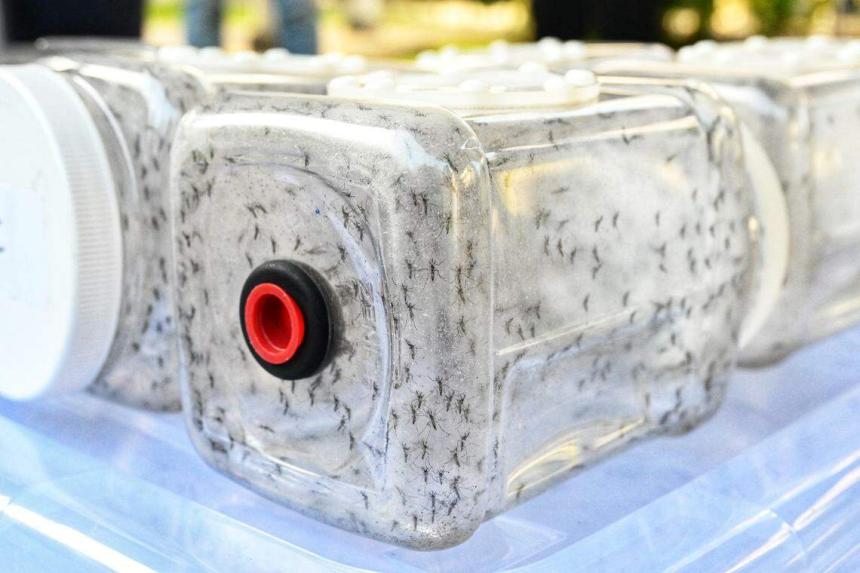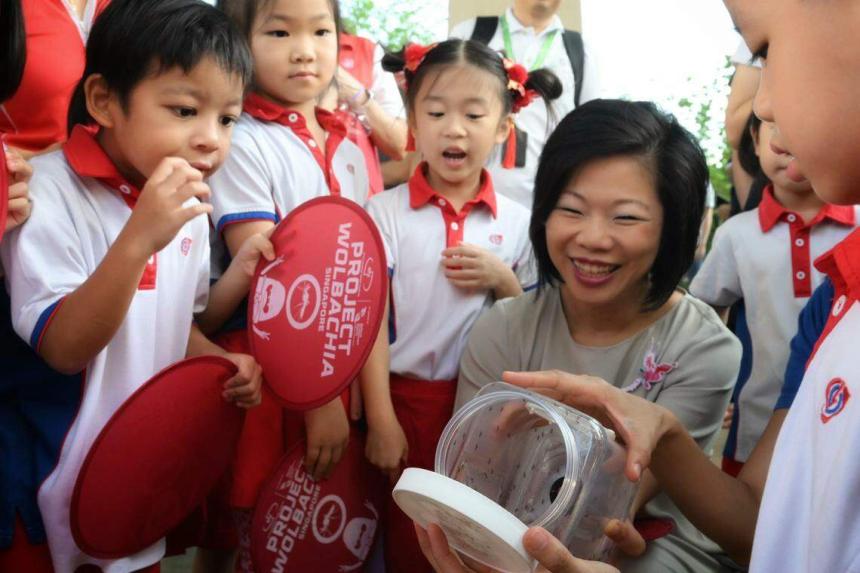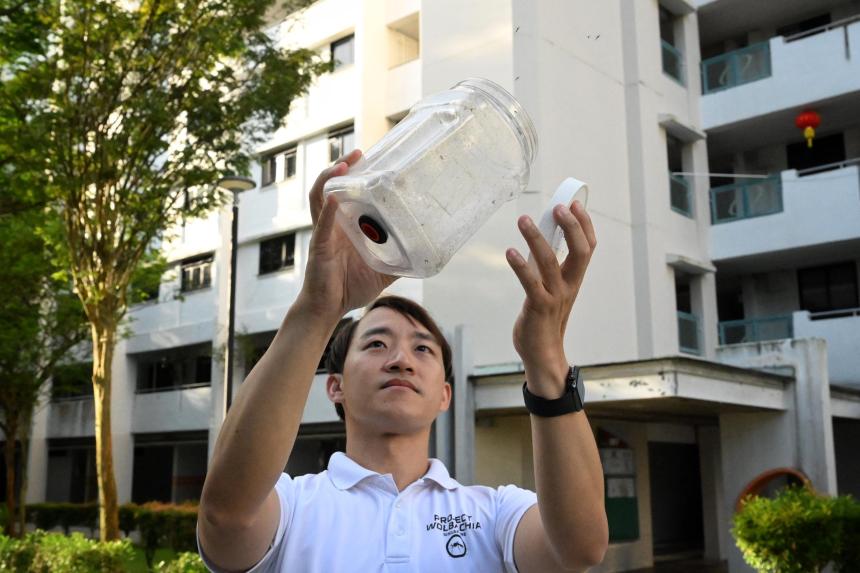SINGAPORE – Project Wolbachia, the programme to control the Aedes mosquito population through the release of lab-grown male mosquitoes, is being expanded to five more residential areas this week, covering 480,000 households – or 35 per cent of all households here – by the first quarter of 2024.
The five areas are Bukit Merah-Telok Blangah, Clementi-West Coast, Commonwealth, Holland and Marine Parade-Mountbatten.
This is up from 350,000, or 26 per cent of households, in 2023. This expansion was first announced in November 2023.
The National Environment Agency (NEA) said then that these locations were chosen based on historical dengue risk and the Aedes mosquito population.
These are in addition to 13 other areas where lab-grown mosquitoes have been released under the initiative, such as Yishun, Marine Parade and Yew Tee.
Under the project, lab-grown male mosquitoes carrying the Wolbachia bacteria are released in high-risk areas to reduce the mosquito population over time. Wolbachia-infected males mating with females will result in eggs that do not hatch.
The expansion of the project comes as the number of weekly dengue cases remains high, with 515 cases reported in the week that ended on Feb 10.
More than 2,600 dengue cases have been reported so far in 2024, NEA said on Feb 15.
The number of Aedes mosquito breeding habitats found on residential premises doubled to 2,025 in January 2024, from 1,016 cases in January 2023.
NEA said the Aedes aegypti mosquito population has been reduced by more than 90 per cent in areas such as Bukit Batok and Tampines, where the initiative was first launched in 2016.
The agency said its data between 2019 and 2022 showed that residents in areas where Wolbachia-infected mosquitoes had been released for at least one year were up to 77 per cent less likely to be infected with dengue.

Additionally, preliminary data from eight study sites such as Bedok Reservoir and Woodlands launched in 2022 also suggest the Aedes aegypti mosquito population there has been reduced by more than 80 per cent.
“With the expansion, 11 million male Wolbachia-Aedes mosquitoes will be produced weekly – up from seven million in 2023,” NEA said in a statement on Feb 20.
The agency said it was able to expand the project through its collaborations with Debug – a project by Verily, a subsidiary of Google’s parent company Alphabet – which provides technology to automate the sex-sorting and release of male Wolbachia-Aedes mosquitoes.

NEA also collaborates with local start-up Orinno Technology on the use of automation and artificial intelligence in the mass production, sex sorting and release of the mosquitoes.
The agency said it plans to develop an additional source that can supply more Wolbachia-carrying mosquitoes, to increase the capacity of the programme as it expands.
On Feb 20, members of the media were invited to a release site at Clementi Avenue 4 where the mosquitoes were released from a van.
Children from a nearby PCF Sparkletots pre-school also released mosquitoes, as part of efforts to educate them about the project.

Senior Minister of State for National Development and Foreign Affairs Sim Ann – who is also an MP for Holland-Bukit Timah GRC – said residents had been asking when Project Wolbachia would be available in their area, noting its impact in tackling dengue elsewhere.
“We still have to maintain vigilance, we will still need to do our part to prevent or minimise mosquito breeding, but we do believe that Project Wolbachia will make a difference,” said Ms Sim.


